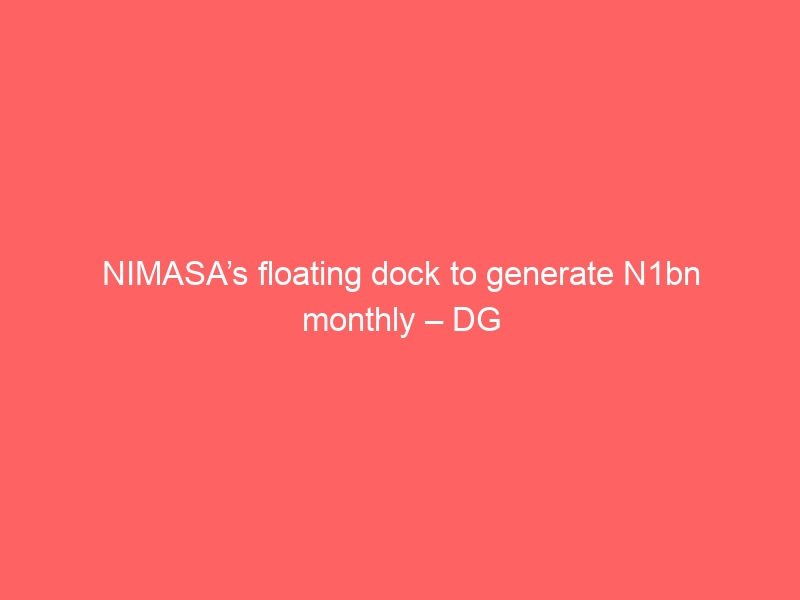The Nigerian Maritime Administration and Safety Agency (NIMASA) on Thursday in Lagos said the agency’s floating dock would generate N1 billion monthly for the country.
Its Director-General, Dr Bashir Jamoh, made this known while presenting his achievements in his first 100 days in office.
According to him, the agency is also expecting huge influx of employment opportunities from the utilisation of the floating dock.
“Presently, the floating dock is at the Naval Dockyard and we are making everything possible to get it to the Continental Shipyard, when the Nigerian Ports Authority would have wound down its operation at the yard.
“Apart from the N1 billion naira monthly the floating dock will generate, we are expecting up to 350 staff engagement and these are the main workers.
“We have five segments comprising cadets in electrical, mechanical and each segment will provide employment for 75 persons.
“Additionally, the floating dock will be used for the sea time. For those who have the expertise in electrical and mechanical; they will be placed there to have their own time,” he said.
Jamoh noted that the agency would be signing a Memoradum of Understanding with all operators of oil and gas, to take their ship to the floating dock and would also be engaging with managing partner, to help manage the dock.
He pointed out that as at now, they are filing with the Infrastructure Concession Regulatory Commission (ICRC), to confirm and approve the Public-Private Partnership arrangement they want to embark upon.
“This is something that is like a cash cow and we are looking forward to full operations soon,” Jamoh said.
He noted that as regards piracy, the synergy they had with the Nigerian Navy and the Nigeria Police Force had led to the arrest of 27 alleged criminals, who were now awaiting trial.
NIMASA DG Jamoh
Jamoh highlighted lack of coordination and interfacing as the biggest challenge in maritime security, adding that the agency would be harmonising its security platform with that of the NPA and the Navy, to bridge this problem.
Jamoh highlighted lack of coordination and interfacing as the biggest challenge in maritime security, adding that the agency would be harmonising its security platform with that of the NPA and the Navy, to bridge this problem.












